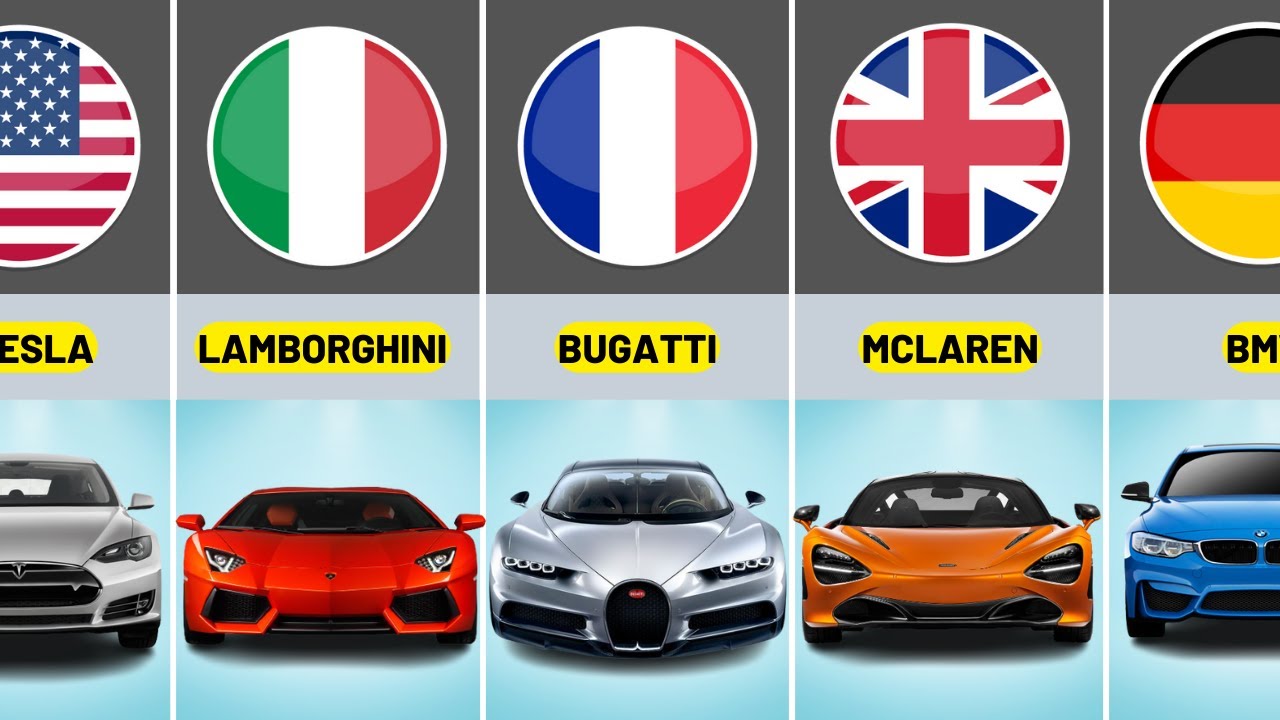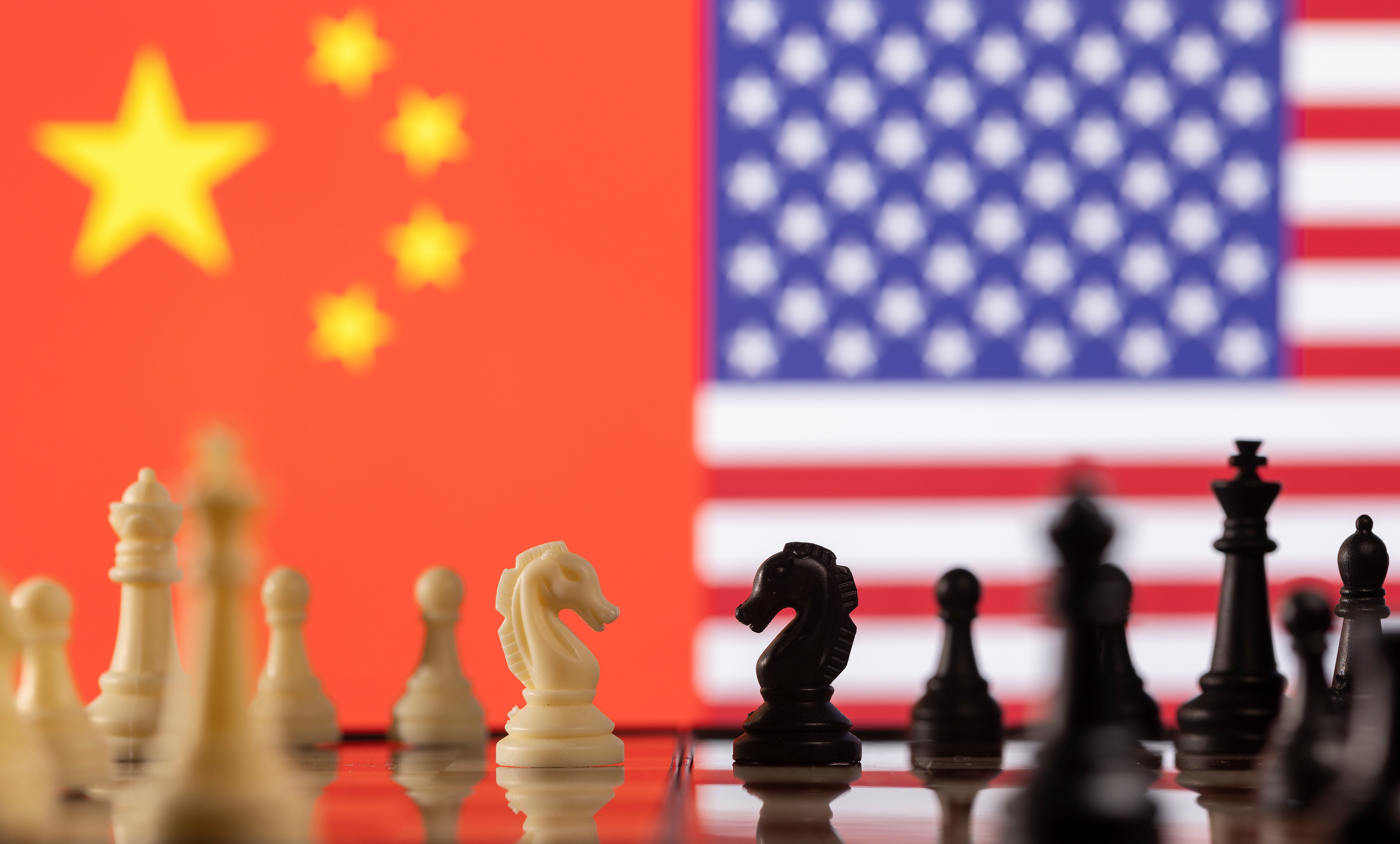The China Factor: How It Affects Luxury Car Brands Like BMW And Porsche

Table of Contents
Chinese Consumer Preferences Shaping Luxury Car Design and Features
Chinese consumers are not just buying luxury cars; they're shaping their design and features. Their unique preferences are forcing luxury automakers to adapt and innovate at an unprecedented pace. Understanding these preferences is key to success in this lucrative market. This includes:
- Demand for Longer Wheelbases: Chinese buyers often prioritize rear passenger comfort, leading to a demand for extended wheelbases in SUVs and sedans. This is readily apparent in many BMW and Porsche models tailored for the Chinese market.
- Color and Trim Preferences: Certain colors and interior trims are highly favored in China, often reflecting cultural preferences and auspicious symbolism. BMW and Porsche have responded by offering color palettes and trim options specifically targeted at Chinese tastes.
- Advanced Technology Integration: Chinese consumers are early adopters of cutting-edge technology. Features like advanced driver-assistance systems (ADAS), seamless connectivity, and intuitive infotainment systems are essential for attracting this discerning clientele. Both BMW's iDrive and Porsche's PCM systems have undergone significant upgrades to meet these expectations.
- Emphasis on Brand Prestige and Social Status: Owning a luxury car in China often signifies success and social standing. Brands like BMW and Porsche benefit from this perception, but must maintain their image and exclusivity to preserve their appeal.
The Impact of Chinese Manufacturing and Supply Chains on Luxury Car Production
The influence of China extends beyond the showroom floor to the factory. Establishing manufacturing facilities in China offers luxury brands significant advantages, including:
- Cost Savings: Manufacturing in China can dramatically reduce production costs, improving profitability and competitiveness.
- Skilled Workforce: China boasts a large pool of skilled labor, capable of meeting the precision demands of luxury car manufacturing.
- Proximity to Market: Manufacturing locally reduces transportation costs and lead times, streamlining the supply chain and benefiting responsiveness to market demands.
- Supply Chain Risks: However, reliance on Chinese manufacturing also presents challenges, including potential supply chain disruptions, quality control issues, and concerns regarding intellectual property protection. BMW and Porsche actively manage these risks through rigorous quality checks and strategic diversification of their supply chains.
China's Regulatory Landscape and its Influence on Luxury Car Sales and Marketing
Navigating the Chinese regulatory landscape is crucial for luxury car brands. Government regulations impact various aspects of the business, including:
- Import Duties and Taxes: High import tariffs can significantly increase the cost of imported vehicles, affecting pricing and competitiveness.
- Emission Standards: China is implementing increasingly stringent emission standards, pushing manufacturers to invest in electric and hybrid vehicle technologies. Both BMW and Porsche are actively developing and launching electric vehicle models to comply with these regulations and take advantage of government incentives.
- Marketing Regulations: Marketing campaigns must adhere to strict regulations, requiring careful adaptation of global strategies to comply with local laws and cultural sensitivities.
- Government Incentives for EVs: Government initiatives promoting electric vehicles present significant opportunities for brands investing in this technology.
The Rise of Chinese Luxury Car Competitors and its Effect on Market Share
The emergence of powerful domestic Chinese luxury brands, such as Nio and Li Auto, is creating a fiercely competitive landscape. This poses several challenges for established players like BMW and Porsche:
- Increased Competition: Chinese brands are offering competitive pricing and features, eating into the market share previously dominated by international players.
- Pricing Pressure: The pressure to compete on price is impacting profit margins.
- Brand Differentiation: BMW and Porsche must differentiate themselves through superior brand image, technological innovation, and unique driving experiences.
- Impact on Profit Margins: Intense competition inevitably leads to pressure on profit margins, demanding efficient operations and strategic pricing.
Conclusion: Understanding the China Factor for Future Success
The China Factor is undeniably reshaping the global luxury car industry. Understanding Chinese consumer preferences, navigating the regulatory landscape, and adapting to the intensifying competition are critical for the continued success of brands like BMW and Porsche. The future of these iconic companies, and indeed many others, hinges on their ability to effectively engage with this powerful market. Understanding the China Factor is crucial for anyone interested in the future of luxury car brands. Continue your research to learn more about how this powerful market is shaping the industry.

Featured Posts
-
 Assessing The Feasibility Of A China Canada Anti Us Alliance
Apr 25, 2025
Assessing The Feasibility Of A China Canada Anti Us Alliance
Apr 25, 2025 -
 The Long Term Effects Of Cool Sculpting Lessons From Linda Evangelistas Case
Apr 25, 2025
The Long Term Effects Of Cool Sculpting Lessons From Linda Evangelistas Case
Apr 25, 2025 -
 Huntsville Father Files Wrongful Death Lawsuit Following Sons Accidental Shooting
Apr 25, 2025
Huntsville Father Files Wrongful Death Lawsuit Following Sons Accidental Shooting
Apr 25, 2025 -
 Josh Fitzpatrick Arrest Latest Updates On The Sextortion Case
Apr 25, 2025
Josh Fitzpatrick Arrest Latest Updates On The Sextortion Case
Apr 25, 2025 -
 Office365 Executive Accounts Targeted In Multi Million Dollar Hacking Scheme
Apr 25, 2025
Office365 Executive Accounts Targeted In Multi Million Dollar Hacking Scheme
Apr 25, 2025
Latest Posts
-
 King Announces Advance Birthday Party Plans
Apr 26, 2025
King Announces Advance Birthday Party Plans
Apr 26, 2025 -
 Early Birthday Celebrations Announced By The King
Apr 26, 2025
Early Birthday Celebrations Announced By The King
Apr 26, 2025 -
 A Kings Birthday Party Plans Unveiled Ahead Of Schedule
Apr 26, 2025
A Kings Birthday Party Plans Unveiled Ahead Of Schedule
Apr 26, 2025 -
 Royal Birthday Bash King Starts Festivities Early
Apr 26, 2025
Royal Birthday Bash King Starts Festivities Early
Apr 26, 2025 -
 Kings Early Birthday Celebration Plans Revealed
Apr 26, 2025
Kings Early Birthday Celebration Plans Revealed
Apr 26, 2025
